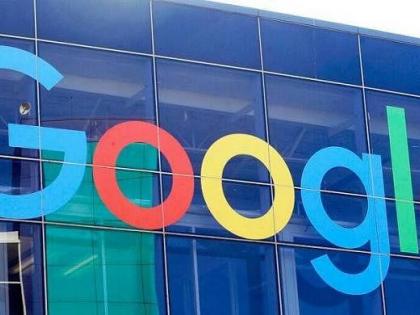CCI fines Google ₹936 crore in second antitrust penalty
By Lokmat English Desk | Published: October 25, 2022 05:53 PM2022-10-25T17:53:05+5:302022-10-25T17:54:36+5:30
Alphabet Inc's Google was fined ₹936 crore on Tuesday as the CCI concluded yet another antitrust probe this month, ...

CCI fines Google ₹936 crore in second antitrust penalty
Alphabet Inc's Google was fined ₹936 crore on Tuesday as the CCI concluded yet another antitrust probe this month, finding the US tech firm guilty of abusing its market position to promote its payments app and in-app payment system. The tech giant was fined Rs 1,300 earlier this month for using its dominant position in the smartphone market to protect the position of its apps like Chrome and YouTube.
For app developers, app stores have become a necessary medium for distribution of their
apps to the end users and the availability of app store(s) is directly dependent on OS installed on a smart device. An appreciation of the market dynamics in licensable mobile operating system in India makes it evident that Google’s Android OS has successfully reaped the indirect network effects. Google’s Play Store constitutes the main distribution channel for app developers in the Android mobile ecosystem, which allows its owners to capitalize on the apps brought to market. If the app developers do not comply with Google’s policy of using GPBS, they are not permitted to list their apps on the Play Store and thus, would lose out the vast pool of potential customers in the form of Android users. Making access to the Play Store dependent on mandatory usage of GPBS for paid apps and in-app purchases is one sided and arbitrary and devoid of any legitimate business interest. The app developers are left bereft of the inherent choice to use payment processor of their liking from the open market. The Commission has also examined the allegations of exclusion of rival UPI apps as payment options on Play Store. It was found that Google Pay has been integrated with intent flow methodology whereas other UPI apps can be used through collect flow methodology.
It was noted that the intent flow technology is superior and user friendly than collect flow technology, with intent flow offering significant and major advantages to both customers and merchants and the success rate with the intent flow methodology being higher due to lower latency. Google has informed the Commission that it has recently changed its policy and has allowed rival UPI apps to be integrated with intent flow. Based on its assessment, the Commission has concluded that, making access to the Play Store, for app developers, dependent on mandatory usage of GPBS for paid apps and in-app purchases constitutes an imposition of unfair condition on app developers. Thus, Google is found to be in violation of the provisions of Section 4(2)(a)(i) of the Act. Google is found to be following discriminatory practices by not using GPBS for its own applications i.e., YouTube.This also amount to imposition of discriminatory conditions as well as pricing as YouTube is not paying the service fee as being imposed on other apps covered in the GPBS requirements. Thus, Google is found to be in violation of Section 4(2)(a)(i) and 4(2)(a)(ii) of the Act.
Open in app